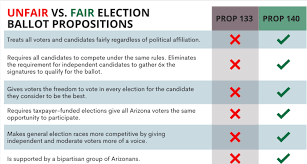
Introduction
As Canada approaches its next federal election, the importance of implementing the best election practices becomes more crucial than ever. With technological advancements, diverse voter populations, and the ever-present need for transparency, ensuring that elections are fair, accessible, and trustworthy is vital for the health of democracy. A well-conducted election can lead to increased voter turnout and public confidence in governmental institutions.
Recent Developments in Canadian Elections
In the past few years, Canada has implemented several key reforms aimed at improving its electoral process. One notable effort was the 2019 election, during which new rules were introduced to prohibit foreign interference in political campaigns and to enhance the transparency of political ads. The need for these reforms solidifies the commitment to maintaining secure electoral practices amid rising concerns about misinformation and external influences in elections worldwide.
Additionally, technological innovations have played a significant role in expediting voting processes. The introduction of online voter registration and the option for electronic ballots are some examples of modernization that streamline voter access and engagement. However, these advancements must be coupled with robust cybersecurity measures to safeguard sensitive information.
The Role of Public Engagement
Public engagement is another essential aspect of successful elections. Awareness campaigns targeted at young voters and marginalized communities have proven effective. Initiatives like Elections Canada’s “Vote, Vote, Vote!” campaign aim to boost numbers by reminding citizens of their rights and responsibilities in the electoral process.
Conclusion and Future Outlook
In conclusion, the roadmap for achieving the best election practices in Canada lies in continuing to adapt to the needs of all voters, enhancing transparency, and leveraging technology responsibly. Moving forward, the focus should also be on fostering public trust through education and community outreach programs. By learning from previous elections and implementing vetted strategies, Canada will not only ensure compliance with democratic standards but also inspire confidence in its electoral processes, ultimately yielding a healthier and more participatory democracy for future generations.



